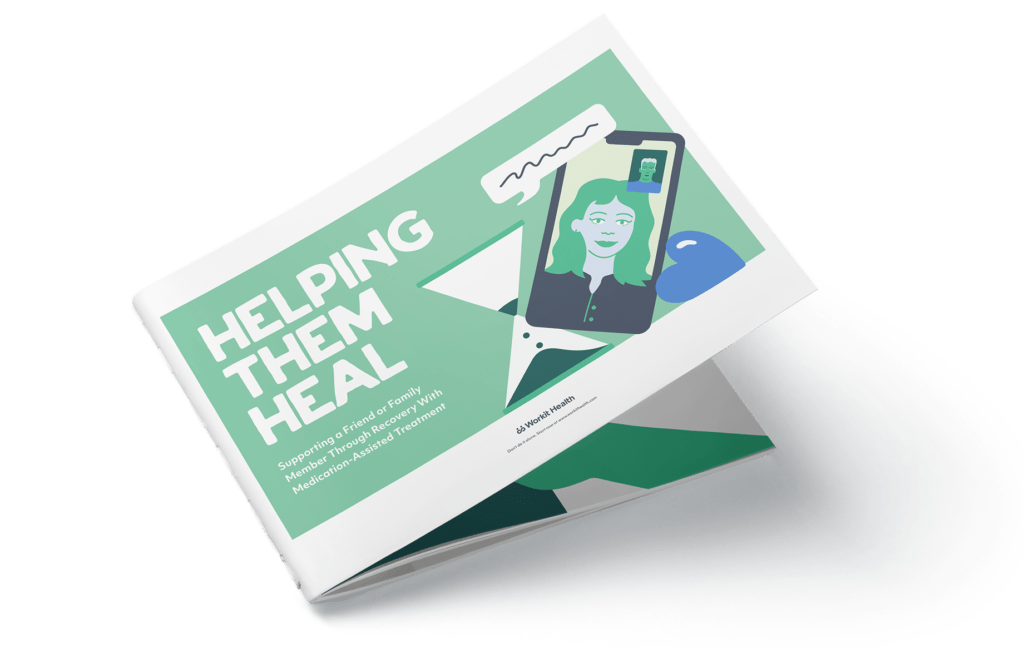Amy Dresner and Joe Schrank speak out against America’s over-reliance on 12-step groups and stigma toward medication.
Recovery culture has always lagged behind the science. The more we learn about addiction, the more we realize that recovery culture is limping along. For whatever reason, AA and its surrounding 12-step culture is the loudest voice in the recovery world.
The evidence supports medication to treat addiction
The success rates reported for 12-step programs vary wildly depending upon which study you read, but one thing is clear: 12-step recovery alone doesn’t work for everyone. Before you pull out your fiery pitchforks, both Joe and I got sober in AA and are still active members. However, we don’t think, “Well, it worked for us, so it must work for everyone.” It obviously doesn’t. Even the Big Book shuns fundamentalism, saying that there are many paths, and encouraging members to make use of doctors … but those messages seem to have gotten lost along the way.
Likewise, the research on medication for opioid use disorder (MOUD), including Suboxone, Subutex, and methadone, is also very clear. People who follow an MOUD program with a licensed provider do better longer term. Period.
Some concerns about medication are valid … others are not
The caveat to any recommendation to give drugs to drug addicts is that they must take them as prescribed.
“In my career as a social worker,” Schrank says, “I’ve heard lots of people say, ‘Well, Suboxone doesn’t really work.’ No, if you cut it in half and share it with your drummer boyfriend, it doesn’t work as well. Like birth control, you have to take the medications as prescribed by a physician.”
Other people claim buprenorphine medications make you a little high. In some cases where the person is misusing it or if the dose is excessive relative to the amount of opioids they were taking, that might happen. And of course, like with any medication, there is an adjustment period. But for most people, there’s no sense of high.
Another objection to MOUD is that Americans love redemption. A percentage of the country believes that gay marriage has caused hurricanes by inspiring divine wrath. So when you suggest that maybe an act of providence—like an intervention by God through prayer or through a community magically removing your addiction or alcoholism—may not work for everyone, people get offended.
Our over-reliance on 12-step programs is hurting our whole nation
By any statistic, we are failing here in the US. Pick another Westernized country. Oh, I don’t know, let’s try the UK. The United Kingdom has 93 overdose deaths per million people. The United States has 313 overdose deaths per million people. That’s more than triple the rate of overdose deaths in the US versus the UK. Why aren’t we asking the United Kingdom, what do you do that we don’t do?
Say to a doctor in the UK, “Oh, no, we don’t medicate people who are opioid-dependent. Instead, we give them shitty coffee in a styrofoam cup and we tell them to pray.” They won’t really know what you’re talking about, and they won’t really understand that culture. The same can be said of Germany, France, Portugal, or Canada. AA is present in all of these countries, but it doesn’t have such a hold on recovery there. MOUD is much more regularly prescribed in the UK, and increasing access to it is a major goal. The lingering idea of American exceptionalism might be one of the things that informs this. It might be the historic love of the Judeo-Christian monotheistic ideal that still permeates more than we’d like to admit. Or, of course, it might be a resistance to the dichotomy and the contradiction that the solution to one’s drug problem is … other drugs.
MOUD might be a long-term treatment, and that’s okay
“Okay,” many Americans think, “you can take some Suboxone for detox, but you have to get off of it as soon as possible if you want to be considered ‘sober.’”
Why do they think this? It’s not true. There are people who get off MOUD after just a couple of months and people who stay on it for years. Both are valid. Everybody is different, and I’m not sure why we can’t accept this. Why we can’t be inclusive in the recovery world?
The American Society of Addiction Medicine, which is the premier standard of treatment for addiction, says that the correct answer for how long somebody is maintained on MOUD for opiate dependence is indefinite. This is similar to recommendations for taking insulin for type 1 diabetes or statins to treat sky-high cholesterol. Sorry, I sort of trust ASAM over a book that was written almost 100 years ago. You wouldn’t do dental work or any surgery the way they did it in the 30s, but addiction, which can kill you … yeah let’s follow a plan written way back then by non-scientists.
People experience certain conditions that require ongoing maintenance and management, with no clear-cut cure. Addiction is one of these. That’s why AA recommends continuing to go to meetings for the rest of your life. So why the idea that you must stop taking MOUD as soon as possible? Huh?
The pressure to get off medication as some kind of purity test hurts people and it increases the risks of relapse, overdose, and death. It also makes people feel judged and runs them out of 12-step rooms where they might otherwise find community and support.
No one gets to define or judge anyone else’s recovery
There are also lots of people around who think that they have some kind of definitive authority over anyone else’s recovery. The truth is each individual retains definitive authority over their own recovery. When I took my Medi-Cal peer support specialist training, I was shocked at how much we talked about self-advocacy and being person-driven. The “consumer” got to decide what was right for them—not a sponsor, not a program, not a doctor. It was so at odds with what I was used to seeing in 12-step circles. I’m still trying to figure out how to meld them together.
If somebody is on MOUD and that is their recovery, then that’s their recovery. They get to have their recovery. Sober living operators, life coaches, case managers … they do not define recovery. You don’t define other peoples recovery and neither do I. Stay out of other people’s recovery. Don’t gate-keep. It’s none of your business. What other people are doing or not doing does not affect the way you choose to define your own sobriety.
Anecdotally, I’ve heard (and seen) endless stories of young people in sober livings where the sober living operator says we don’t allow that medication, and the kid ends up fucking dead. And here’s the really weird thing about that. “We don’t allow that medication,” could be argued to be practicing medicine without a license. Which is a felony.
Embracing MOUD as an option fits into our changing culture
Lots of things have left the culture. Well-meaning people don’t say ‘retard’ or the n-word anymore. ‘Queer’ has taken over from ‘gay.’ Sex positivity has taken over slut shaming. Fat shaming is becoming verboten, as is commenting on other people’s bodies. There are lots of things that are becoming less accepted parts of the vernacular. And yet, “You’re not really sober,” lingers on … I mean, “unless you’re sober the way I’m sober.”
Think of it this way. Imagine being diagnosed with cancer. A good provider would cover your options. “Here’s your tumor. This percentage of people with cancer like yours respond to radiation. This percentage respond to chemotherapy. This percentage of people respond to surgery. This percentage respond to a combination of those things. I suggest this, but it’s your body. What do you want to do?”
That kind of evidence-based approach (emphasizing patient autonomy) is the standard of care in medicine, but it’s not the standard of care in addiction care and treatment culture. If the oncologist were a fundamentalist 12-stepper, he would say, “My tumor responded to radiation, so yours will, too. If you have chemotherapy or surgery, you’re cheating and you’re not really getting rid of the tumor.” What?! Can you see how righteous and insane this is now?
To treat people who need MOUD as not really sober is dehumanizing, uncompassionate, and unkind. And if we’re doing such a great job, then what’s with the 313 overdose deaths per million US citizens compared to 93 per million in the UK?
Joe and I are both abstinent, but we support acceptance of MOUD
It’s time for other people who recover in ways that work for them. So much prejudice and stigma come from within the 12-step community which is horrible. It’s supposed to be a place for mutual support and caring. There are millions of people who address their substance misuse, their substance overuse, their drinking, their opiate dependence, in ways other than abstinence and prayer. I’m not saying this out of personal defensiveness. I am an abstinent person and so is Joe.
“I am a person of faith,” Schrank says.”I do it with abstinence and prayer, and I just celebrated 28 years. I’m all for abstinence and prayer, but I’m also for success, and I’ve seen far too many people drop dead when maybe they didn’t need to.”
Maybe there can be fewer grieving families. Maybe there can be fewer people who die. Maybe there can be more people who have productive lives, maintained on all kinds of medications. I’m on three controlled meds for epilepsy alone, not to mention an SSRI and hormone replacement therapy. I’m on more drugs than when I was on drugs! I am not a person of faith, but saving people’s lives, whatever the cost, is more important to me than anything in a book.





